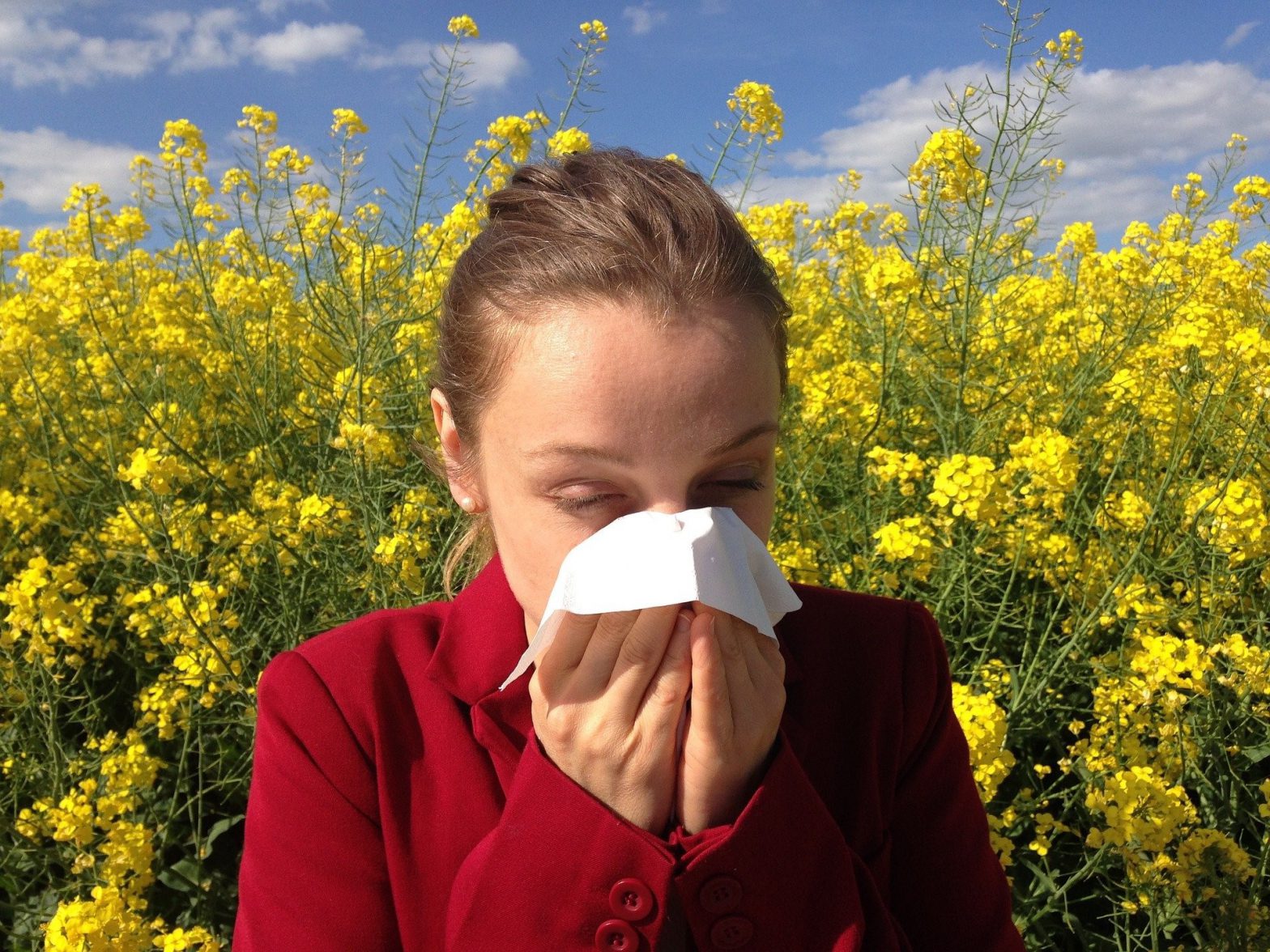Seasonal allergies are among the most common allergies in Europe, affecting almost half of the population. They belong to the many respiratory allergies caused by pollution and allergens (grasses, trees, herbs) in the air. Spring and early summer are the most favourable seasons for pollen allergy, commonly known as “hay fever”. If you are prone to pollen-related allergic reactions, it is important to take the right steps quickly and to know which remedies can help to reduce your symptoms.
What are the actual symptoms of a seasonal allergy?
The allergic reaction mainly affects the eyes and nose. It can create allergic conjunctivitis, which can result in red, watery, stinging and irritated eyes, which can cause nose runs blocked nose, frequent sneezing, and irritating coughing. These signs may be aggravated in the presence of wind, but generally diminish during heavy rain. The occurrence of these symptoms should alert you to a risk of allergy that can occur during childhood, but can also appear at any age.
If you are concerned about the occurrence of allergic-type symptoms, an allergology-type blood test will allow an initial diagnosis. Nevertheless, in some cases, a skin test will be necessary to refine the analysis of the allergens at the source of your allergy.
What are good preventive measures to adopt at home and abroad?
Here are some good practices to prevent an allergic crisis.
At home:
– Vacuum as regularly as possible.
– Ventilate your home, preferably early morning or late evening, and when it rains.
– Take a shower before going to bed and systematically wash your hair, as grasses tend to accumulate there.
– Preferably hang your clothes inside your home rather than outside in the garden or on the balcony.
– Change clothes upon return of outside activity.
Outside:
– Wear sunglasses and a haton sunny days
– Avoid mowing the lawn as this will increase the volume of allergens in the air.
– Drive with closed windows- Avoid swimming in a pool as much as possible, as chlorine can trigger aggravating effects.
Also be aware that there are different types of pollen, coming from trees or grasses. The pollen present at the beginning of the year until May comes mainly from trees such as ash, oak, birch or cypress. During the summer season, pollen comes mainly from grasses. Some pollens are more aggressive than others, such as birch and ash, which are very common here in Luxembourg. Therefore, you should be careful when you go out and avoid areas with too many trees.
Is a medicinal or natural treatment more recommended?
For the most virulent allergies, it is advisable to make an appointment with a doctor or allergist who will prescribe eye drops, nasal spray, antihistamines and/or corticoids. Antihistamines (oral or nasal) act directly on swelling and itching, while corticosteroids in nasal suspensions will relieve inflammation of the mucous membranes of the nose. Avoid taking such treatments too regularly, as they can have undesirable effects such as nosebleeds, even when taken for a few days.
Another solution may be desensitisation (specific immunotherapy or vaccinotherapy) which works on the same principle as a vaccine. The idea here is to introduce the allergen into the patient so that the body can get used to it. Booster treatments may be necessary if symptoms persist, in which casea diagnosis by an allergist is mandatory, as desensitisation is contraindicated for people with weakened immune systems.
If your allergy doesn’t disturb your daily life, but you would still want to reduce its impact, you may consider aromatherapy. Whether an oral solution or another form, it offers many benefits:
– Nettle: acting as an antihistamine, a good nettle soup or herbal tea may be recommended when you suffer from mild symptoms.
– Citrus fruits: Vitamin C may help you to fight an allergic crisis, because it will boost your immune system.
– Peppermint: it also acts against the production of histamine, therefore has beneficial effects against respiratory problems. It can be used as infusion or essential oil to be inhaled.
– Eucalyptus radiata: in essential oil form, it has soothing anti-inflammatory properties. Simply pour a few drops on a cloth or handkerchief and inhale.
– Tarragon: its anti-allergenic properties make this herb an excellent natural remedy for pollen allergy. It is also rich in vitamin C. It can either accompany your meals or taken as an infusion.
If you are one of our clients, you are experiencing the first symptoms of seasonal allergy and you would like to consult a general practitioner, we wish to remind you that teleconsultation is freely available and unlimited at Foyer Global Health, 24 hours a day, 7 days a week.


